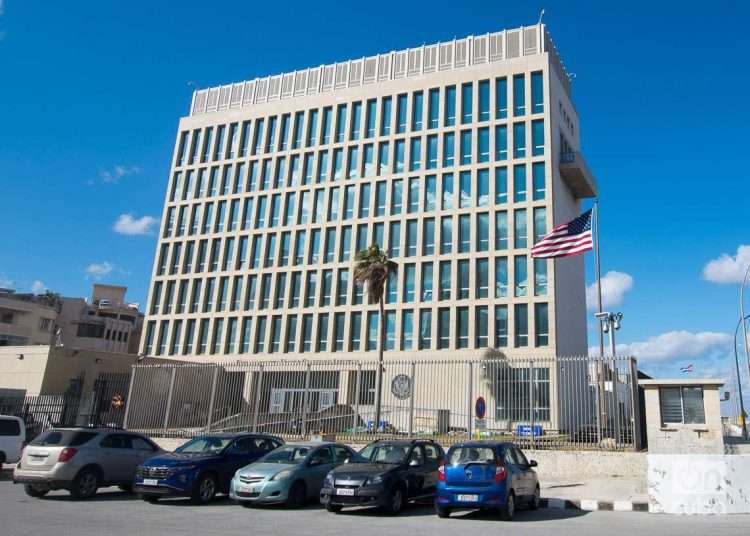Two weeks ago, the Biden administration announced a new program to enter the United States, through a parole system that grants up to 30,000 monthly permits for citizens of Cuba, Venezuela, Nicaragua, and Haiti.
In this scenario, the U.S. embassy in Havana assured that another immigration program for the island’s residents, the Cuban Family Parole (CP3), remains suspended indefinitely.
In a message on Instagram, an employee of the diplomatic headquarters recalled that there are other possibilities to emigrate to the United States.
“United States Citizenship and Immigration Services suspended this program indefinitely in 2017. Other immigration alternatives may exist, and we encourage you to visit the USCIS website or contact the USCIS contact center through the links we leave below for additional information,” said an employee who gave his name as “Andy.”
Those links are www.uscis.gov/es and www.uscis.gov/contactcenter.
In September of last year, the embassy announced that it had reactivated the Cuban Family Reunification Program (CFRP). Then, it said that it had begun to process the pending applications.
“USCIS has begun mailing interview notices to CFRP petitioners with instructions for the beneficiary interview. On August 18, USCIS began conducting interviews at the United States Embassy in Havana,” the statement said.
U.S. Embassy in Cuba reactivates Family Reunification Parole Program
The Cuban Family Parole program was suspended in 2017 when the embassy closed most of its consular operations due to staff reductions ordered by the Donald Trump administration.
The move followed reports by U.S. officials of a mysterious ailment, which Washington initially attributed to “acoustic attacks” and whose cause remains unknown.
It is estimated that with the suspension more than 100,000 Cubans were stranded. There is no confirmation on whether that number is current.










